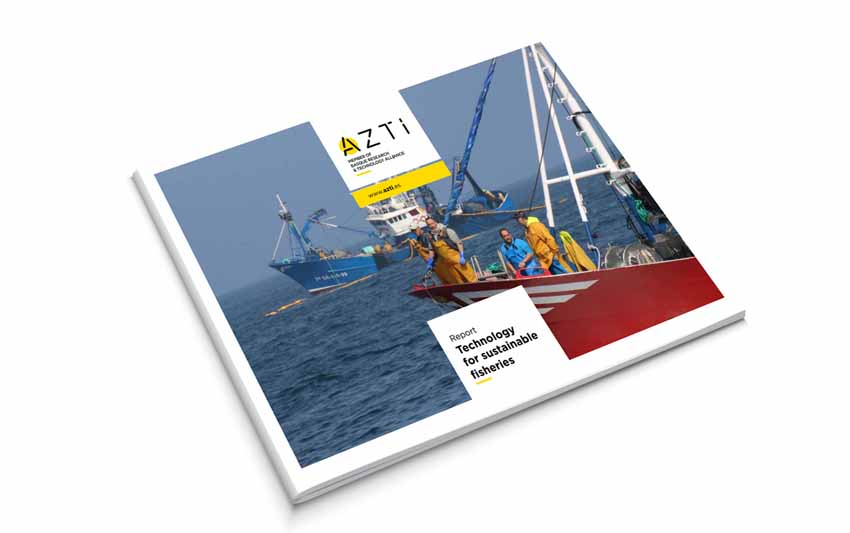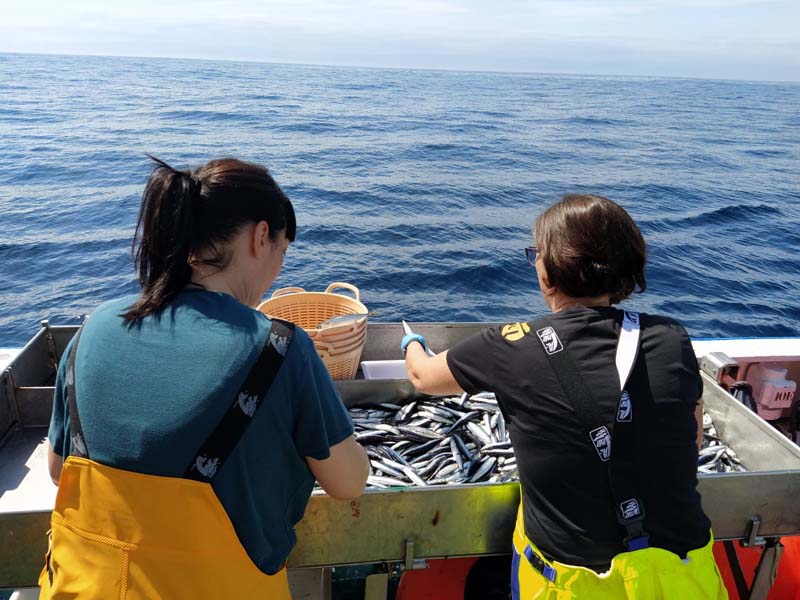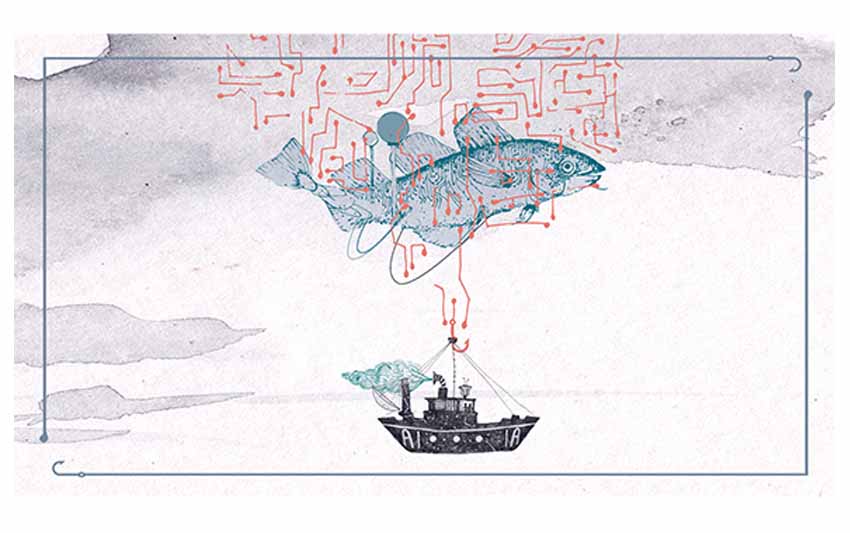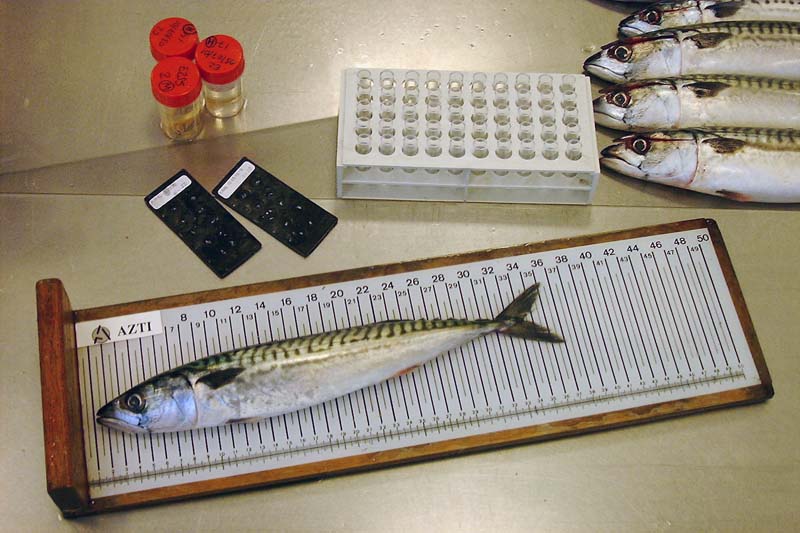Marina Santurtún presented examples of the implementation of the ecosystem approach to fisheries management at the United Nations.
Últimas noticias
Digital Transformation of the Fishing Fleet: AZTI Explores the Future of the Industry with AI and Sustainable Solutions
The replica of the San Juan will set sail on a scientific mission thanks to an agreement between Albaola and AZTI.
Artomaña Txakoli Achieves the Best Enviroscore Category (A), as a Result of Its Environmental Commitment
Marina Santurtún, market manager for sustainable fisheries and oceans, was a panelist at the 15th round of informal consultations on the UN Fish Stocks Agreement on the implementation of the ecosystem approach to fisheries management.
These sessions are a key factor in determining the future of fisheries and Santurtún’s participation, invited by the Ministry of Agriculture, Fisheries and Food, is a recognition of her work in the fisheries management field. Below we explain what the Agreement is and what her presentation was about.
Índice de contenidos
UNCLOS/CONVEMAR: the international agreement on the use of the seas
The 1982 United Nations Convention on the Law of the Sea (UNCLOS/CONVEMAR), which came into force on 16 November 1994, is an international agreement that provides a regulatory framework for the use of the world’s oceans and seas, inter alia, to ensure the conservation and the equitable use of marine resources and the marine environment and to ensure the protection and preservation of the living resources of the sea.
Within the convention, the Provisions relating to the Conservation and Management of Straddling Fish Stocks and Highly Migratory Fish Stocks (UNFSA), establishes the principles for the conservation and management of fish stocks and provides that such management should be based on the precautionary approach and the best scientific information available. In addition, the Agreement develops the fundamental principle that States should cooperate to ensure conservation and promote the objective of optimum utilisation of fishery resources both inside and outside the exclusive economic zone
As foreseen in paragraph 61 of resolution 74/18, the UN General Assembly noted the recommendation of the Review Conference in 2016 that informal consultations of States Parties to the Agreement be devoted annually to the consideration of specific issues, with a view to enhancing understanding, sharing experiences and identifying best practices for the consideration of States Parties, as well as the General Assembly and the Review Conference.
Thus, the signatory countries of UNCLOS meet in what are called informal consultations and since 2016 they do so every year with a different theme such as the “science-policy relationship” (2018) and on the “review of the performance of Regional Fisheries Management Organisations and Arrangements” (2019). In 2022 and after 2 years of pandemic, the consultation meeting has been on “implementing an ecosystem approach to fisheries management” and has been a lead-up meeting for the resumption of the 1995 UN Fish Stocks Review Conference. All these annual work themes will feed into the Review Conference of the Agreement to be held in the first half of 2023.
Spain’s contribution to the 2022 informal consultations
Marina Santurtun attended the United Nations from 17 to 19 May to explain the work and approach that Spain is carrying out in relation to Fisheries Management based on or with an ecosystem approach. Santurtun was elected by the MAPA due to its wide experience in the field of fisheries management and the collaboration that AZTI has maintained with the Fisheries Secretariat over the years.
Three examples of how the necessary ecosystem and environmental knowledge is being generated that can then be incorporated into fisheries assessment and management were selected for the speech:
- The case of tuna, for which RFOs (Regional Fisheries Organisations) are already setting out the strategy for implementation of the ecosystem approach. AZTI is contributing to the definition of this strategy, as well as the development of knowledge and tools to carry it out. Examples include studies on population genetics, climate change and preferential habitats, and digitisation projects in fisheries such as SunTunTech.
- The case of mesopelagics is an example of how we consider the ecosystem approach from the very beginning, before commercial exploitation of these species begins. In other words, we reformulate the traditional questions of fisheries management into new questions based on the ecosystem in order to assess whether or not a resource can be exploited. Examples of this are SUMMER and MEESO projects.
- Traditional fisheries campaigns and their development towards more ecosystem-based campaigns as an example of the potential of certain existing data collection platforms or frameworks and how to optimise them.
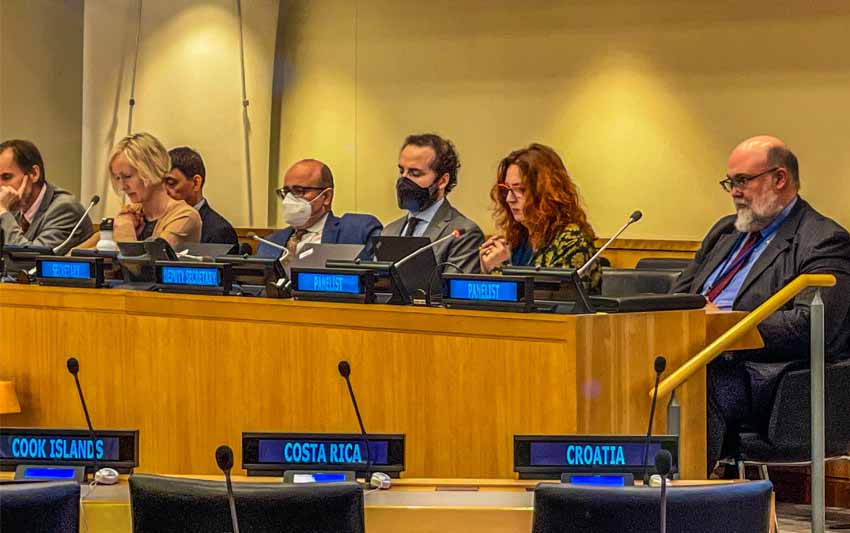
Contribution of the ecosystem approach to fisheries management
FAO considers the ecosystem approach to be the way to implement sustainable development. In other words, it is to apply a form of fisheries management that balances different social objectives (e.g. ecological and economic objectives) in an integrated way.
Moreover, the ecosystem-based approach to fisheries management is both adaptive and integrated because:
- It is science-based, incorporating the whole ecosystem, including humans.
- It helps managers make management decisions by taking into account trade-offs to protect and maintain productive and diverse ecosystems and the associated services they provide.
- It helps management decision-making by optimising ecosystem benefits, but, at the same time, not degrading them to the point where benefits cannot be sustainable.
That is to say that fisheries management with an ecosystem approach seeks to maintain fishery resources for present and future generations, meeting the needs of the present without compromising the ability of future generations to meet their own needs.
